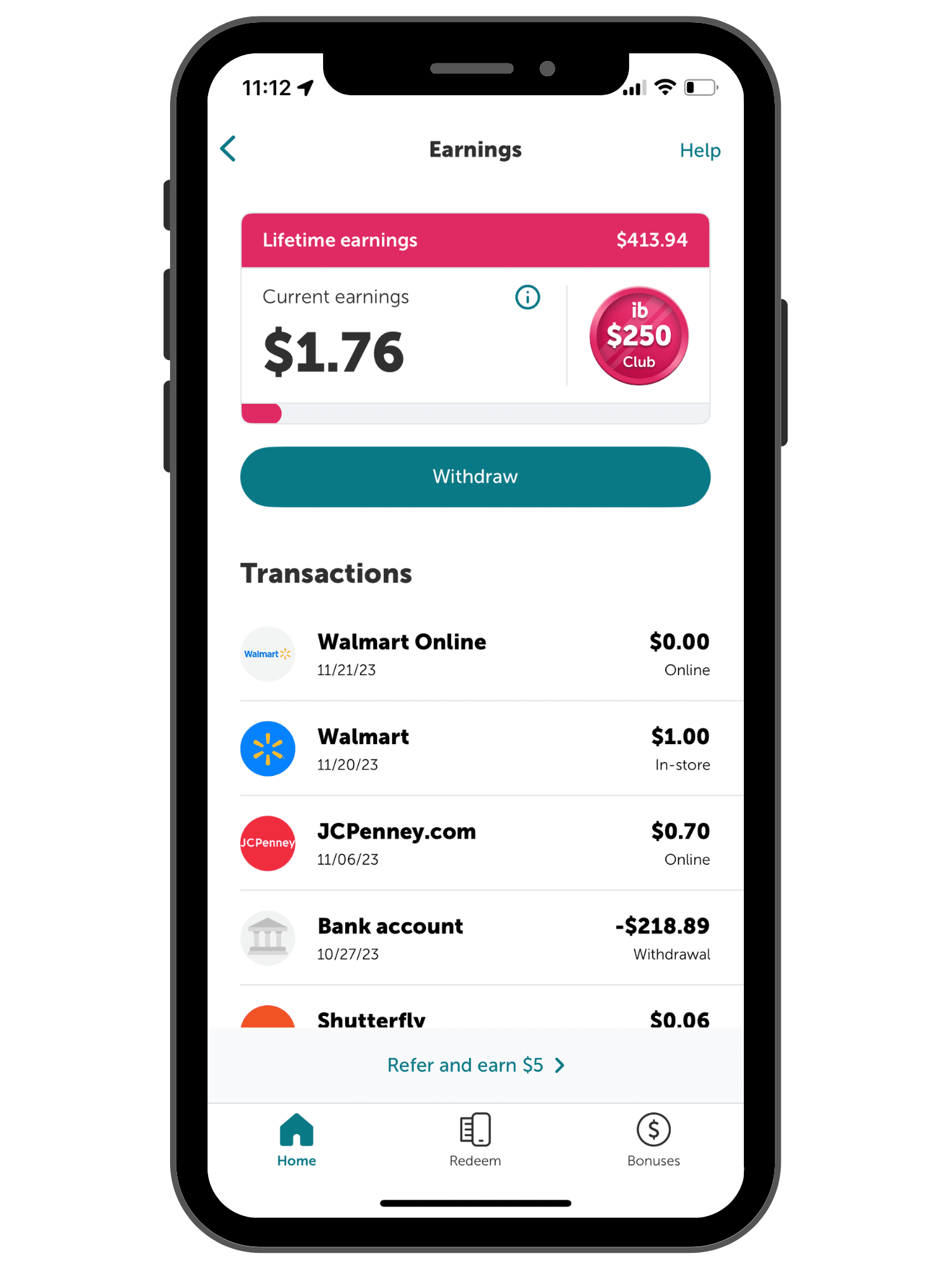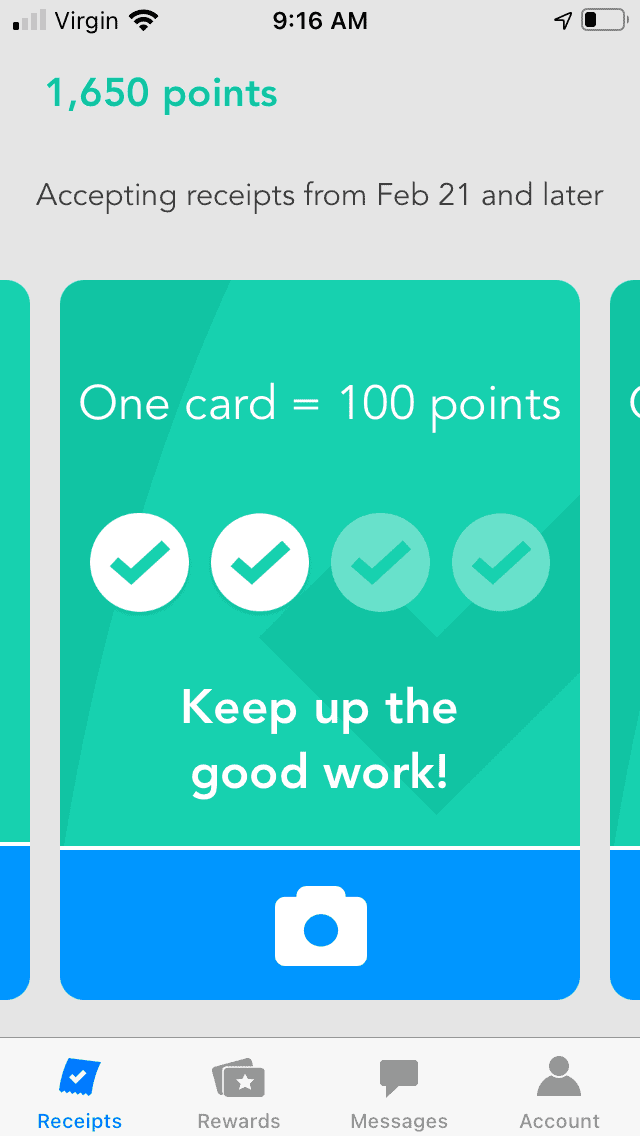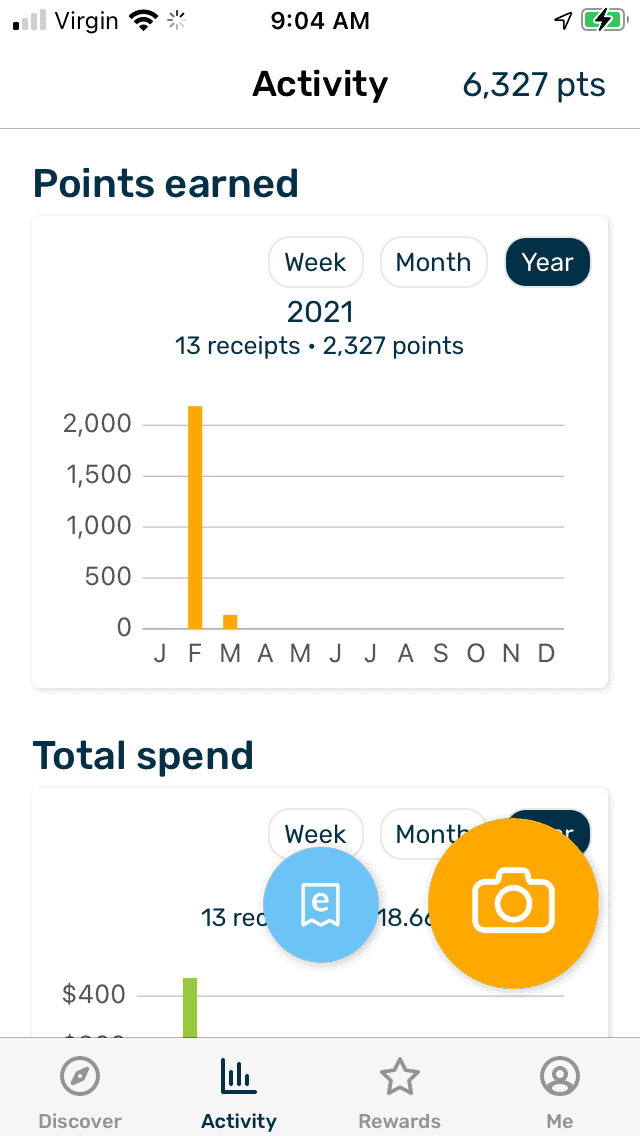Let me show you how to save money on minimum wage – because without these strategies, it’s going to be near impossible to do.
I’m not going to sit here and pretend it’s easy to save money when you make minimum wage.

It’s not.
Having said that, I can tell you that it’s not impossible, either.
How to save money on minimum wage? Well, you’ve gotta get crafty.
I’ve got over two decades of experience with helping others – and myself – save money in less-than-stellar circumstances.
So, buckle up as I go through my best tactics for you!
But first up, let’s address the elephant in the room.
Can You Live Off Minimum Wage (Let Alone Save Money)?
Is it even possible to live off of minimum wage (let alone save money when you’re earning minimum wage)?
You’ve likely seen the minimum wage budget example McDonald’s put out, and how the internet basically laughed at it.
This was because of:
- how unrealistic the budget was in terms of how much things and bills actually cost
- the assumption that someone working full-time (40 hours/week) at McDonald’s also has time for another job that earns almost as much
- there’s nothing budgeted for childcare, or gasoline (even though there’s $150 budgeted for a car payment…)
- etc.
Here’s a link to it in case you missed it.
I do like that McDonald’s included $100 in savings/month in their budget, showing that saving money – even on minimum wage – is extremely important.
However, I feel like they didn’t really give any help for how people can do this.
Is it possible to live on minimum wage? Yes.
Is it darn hard to do (like, you really have to have a lot of good strategies in place, such as living with a roommate who pays half of the bills)? Yes.
Since this is an article on how to save money on minimum wage, I’m going to dive into that. But rest assured that following these strategies below will also help you to live off of minimum wage.
Because if you can’t save money, then you never end the paycheck-to-paycheck cycle.
How to Save Money on Minimum Wage
Living paycheck to paycheck feels lousy. Amiright?
That’s why I’m dedicating this article to my best tips on how to save money when you’re making a low income.
1. Apply for a Savings Match Program
Have you ever heard of savings match programs?
These are government, bank, and non-profit-sponsored programs that match your savings. Which means, you can set aside just a little money and really start to build an emergency fund and other savings.
You can click through to my article on the subject for lots more info, and here’s a rundown of the types of programs you’ll find:
- Nonprofit and Government Matched Savings Accounts
- Bank/Organization Matched Savings
- IRS Tax Incentives for Retirement Savings
- Employer Matched Savings
2. Get Cash Incentives from Your Health Insurance Wellness Program
Finding several hundred dollars you can put into savings this year could be as simple as looking at your employer's health insurance plan.
Have you ever heard of an insurance wellness program?
These are incentive-based programs to get you to take healthy actions throughout the year. Insurance companies are willing to pay you to do this because overall, it lowers their costs as a company.
I was pleasantly surprised to find out that at my husband’s last employer, we could EACH earn $450/year by recording our weekly exercise, going for the free annual physicals we already did (just needed to have the doctor’s office fill out one form), and other easy actions.
And guess we? We pocketed that $900 at the end of the year, in the form of a check from the health insurance company.
SCORE.
We're on a different insurance plan now with a different employer…and they offer a $250 incentive per person, that you can use towards healthcare costs. Woohoo!
Ask your employer, talk to HR, or log into your health insurance plan online to see if yours offers something similar.
Some programs may offer a discount on your health insurance premiums (that you would then take that money and put into your savings), while others give cold, hard, cash.
3. Use Your GI Bill College Benefits
How to save money with a low-paying job?
Well, if you have GI Bill benefits with college help (like the post-9/11 GI Bill), then definitely look into getting that degree.
That's because not only will that help you to eventually get the skills to get out of a minimum wage job, but you also will likely qualify for a housing stipend.
When my husband used his GI bill to go back to college and get his degree several years ago, we were pleasantly surprised with a sizable monthly housing stipend that came with it (over $1,000/month).
4. Scan Receipts for Cash and Gift Cards
Do you grocery shop? Thought so – almost everyone I know has to buy food.
You’re going to use those receipts from the grocery store, and any other receipts you have throughout the week, and scan them for free cash and gift cards.
Can’t get better than that, right?
I use three different apps (YES – you can input the same receipt into all three, for way more earnings than just one!).
Each one is the same as far as how to send in receipts – you simply snap a photo of it. BOOM.
I’ll put them in order of how much I earn:
#1: ibotta

Check out how much money I’ve earned using this app since joining last October 2019 – $413.94!!
(psst: none of this money earned is from referring others – this is actual earnings from using the app itself).
With this app, you go through the offers and choose which you’re going to buy anyway. Then you add those offers to your account, and at the end of your grocery shopping trip, you scan in the receipt to collect.
I just love how many bonuses they have!
What I love about this app is that you can cash out in ACTUAL cash. So, I can withdraw that money anytime I’d like to my PayPal account or directly to a bank account. You also have the option to cash out via a gift card.
#2: Fetch Rewards
I just joined these guys last month, and so far, have accrued enough for a $5 gift card to Amazon!
What I like about this app is you can use any receipt to earn points (apps like Ibotta only allow earnings from specific stores).
While you have to cash out in this app with gift cards, there is an option for a MasterCard/Visa one (so you would take that gift card and spend it on something you’re buying anyway, like groceries, then take the money you would have spent on groceries and put it into your savings).
#3: ReceiptPal

This one is super simple but also earns the least.
You just snap a photo of your receipt from any location, and for each card of receipts you fill up, you earn 100 points.
5. Find Out if You Qualify for Low-Income Programs
I’ve got a huge article on both national and local financial emergency resources, and you’ll definitely want to take a look as some of the programs are not for emergencies, but to help low-income families and individuals.
6. Split the Majority of Your Expenses
Working for a minimum wage means it will be almost impossible for you to live on your own, let alone live on your own AND save money.
You’ve gotta get creative with splitting expenses with others.
For example, my aunt lived in Washington D.C. in a posh neighborhood for most of her adult life. She did this by renting out 3-5 rooms in the house. As one roommate moved out, she’d interview and replace them with another. She’s met some amazing people over the years this way!
Other creative examples of people who split expenses:
- Own a car? Commute with someone else and have them give you $10, $20, or whatever amount each week for gas that makes up their share.
- Textbook share for a class with someone else. I went to the London School of Economics for a semester, and it’s completely normal for professors to order one or two copies of all textbooks for the class, house them in the library, and have everyone share the same textbooks. It can be done with just two people!
- View your “eating out” budget as only when the boss pays – meaning, you get to eat out when you travel for work and you get reimbursed.
- Split a Bulk-Buy store membership (and finds) with someone else (like Costco or Sam’s Club).
- Get rid of entertainment costs (but don't get bored) with these 74 things to do with friends without spending money, and 19 free printable board games for adults
7. Don’t Own a Car
In most cases, sharing a ride co-commuting with someone else, or buying a bus pass/metro pass, is going to be way less expensive than owning a car.
When you own a car (even a beater car), it’s not just the car payment you need to make each month. You’ll also need:
- Weekly/bi-weekly gas money
- Insurance money
- Repair money
- Oil change money (every few months)
- Registration/emissions inspection money (annual)
It’s just not typically worth it if you make such little income to begin with.
Hint: squeamish about giving up your car? Okay…keep it, but earn money off of it by sharing it with others.
8. Make Better Use of Your Free Preventative Care Appointments
There’s a fine line here, but to avoid extra trips and co-pays to your doctor’s office, try to make better use of your free preventative care appointments everyone (who has health insurance) gets throughout the year.
For example, I’ve:
- Scheduled a free wellness visit around the time that I had another health issue I wanted to ask about
- Discussed specific questions about my gums with my dentist during routine cleanings, instead of coming back for that issue
- Discussed several questions and issues with my physician during my free annual physical when they asked if I had any concerns instead of having to pay for another appointment co-pay
PSA: Whatever you do, don’t skimp on doctor appointments when you have symptoms and think something could be wrong – not only could that cost you lots more down the road, but it could cost your health and even your life. None of that is worth it just to save money!
9. Rethink Your Grocery Sources
When I was a teen, my stepmother found this outlet grocery store we used to go to where we routinely scored awesome deals on food that didn’t look as pretty as it needed to for a regular grocery store.
What a great way to save money on unexpired food!
Get familiar with the discount and salvage grocery stores in your area to score some sweet deals. It'll help you come in under the average household grocery bill for families of 2, 4, etc.
And guess what I do NOW to save money on our groceries? I shop for several of our meals from Dollar Tree.
Yep.
You can get my family's favorite recipes, here:
- 7 Dollar Tree Dinner Ideas ($42.50/Week)
- Dollar Tree Meal Plan for 2 People ($37.50/Week)
- Fun Dollar Tree Charcuterie Ideas
- The 7 Best Dollar Tree Lunch Ideas
10. Get a Thrill from Thrift Stores (I do!)
Would it be weird to tell you that I source probably 50% of my clothes from the thrift store?
It’s a habit I got into when I was earning minimum wage in my early 20s, and one I still haven’t changed in my late 30s because you know what?
I enjoy the hunt of a great deal.
In fact, one of my best friends loves to do this, too!
You will never know how many cool outfits you can put together from the thrift store if you don’t try them. And, dare I say, try to enjoy it!
Pssst: you’ll definitely want to get this free printable outfit styling guide to figure out how to style your own clothes better, and finds from the thrift store.
11. Source All of Your Entertainment from the Library
I’m being serious here. If you’re struggling to save money, then you don’t have the funds to pay for entertainment, anyway.
But you have to enjoy your life, right? Otherwise, what’s it really for?
At your local library, you’ll find things like:
- Free DVDs to checkout
- Free classes to take
- Free book talks
- Free books and magazines to check out
- Free eBooks to fill your free Kindle app with
- Free children’s programs and activities
- Free teen programs and activities
- After-school activities and programs
- Etc.
Hint: definitely check out my articles on sourcing free full-length audiobooks, free horror audiobooks, free full-length eBooks, and cheap used books.
And if you live near a college? Ask if you can get a free membership to their college library – we used to offer this to the “townies” at the college library where I worked (yup – I worked for minimum wage at a library for four years during college! It was a great job).
I’ve given you my best 11 tips for how to save money on minimum wage. Not all of them are going to work for your situation – so you’ve gotta pick the ones you’re willing to try and see what happens. Don’t forget to come back, and pick new ones to make even bigger cuts in your expenses, so that you can finally get some money over into savings. And one last piece of advice? Don’t forget to actually send money from your checking account to your savings account…because that’s the whole point of going through these tips and implementing them.


BB
Thursday 31st of August 2023
I need the budgeting help.